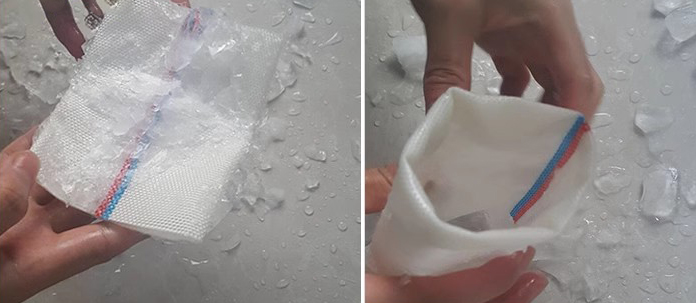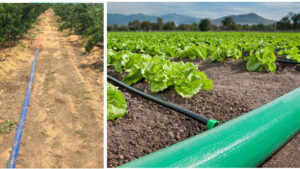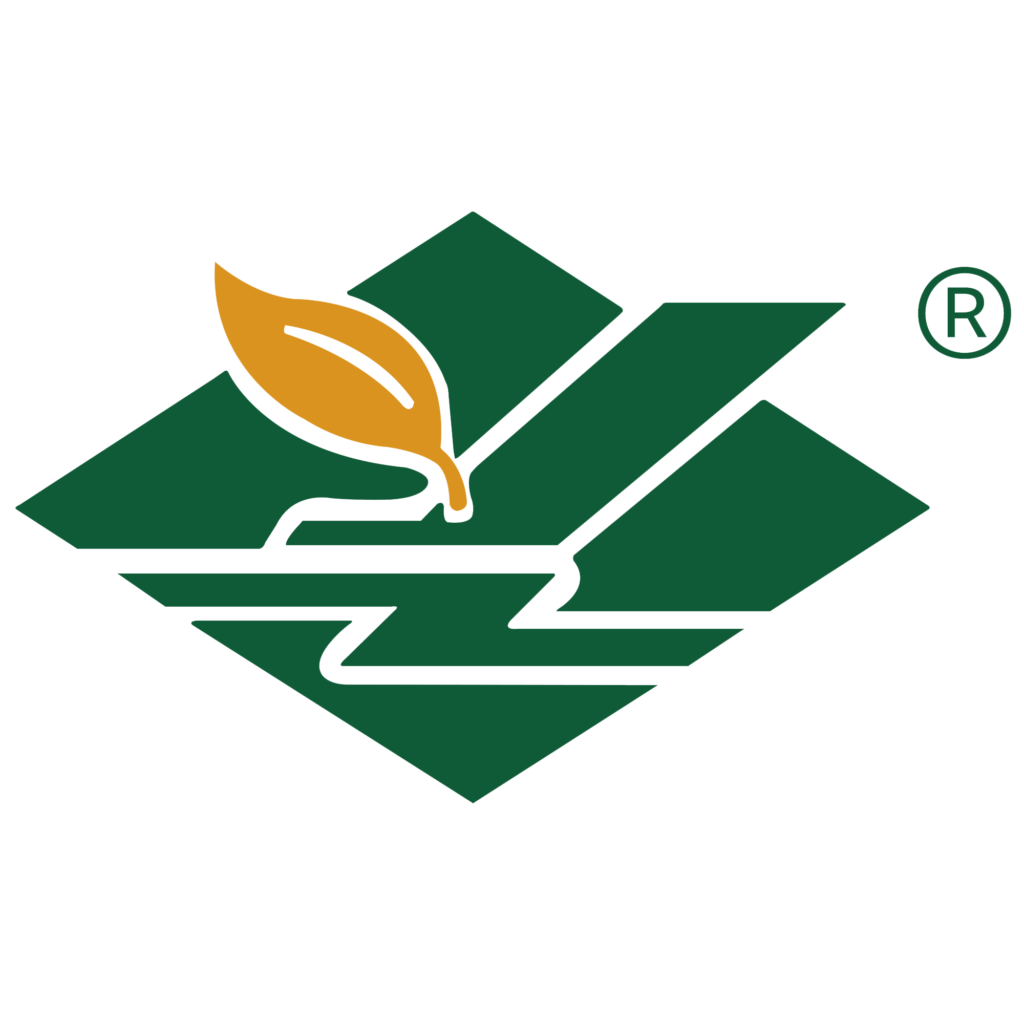When it comes to choosing the right hose for agricultural purposes, farmers often ask themselves, “Which is better: PVC, TPU, or rubber?” These hoses play a critical role in irrigation systems, chemical applications, and water distribution. Understanding the differences between these materials is key to ensuring long-term durability, flexibility, and efficiency in your farming operations.
Each material—PVC, TPU, and rubber—has its own advantages when it comes to lay flat hoses. PVC is cheap and light, but it doesn’t do well in the cold. TPU is more durable and chemical resistant, making it great for high-pressure and harsh environments. Rubber is super flexible and can handle extreme weather, but it’s usually heavier and more expensive. Depending on what you need, each material has a place in agriculture.
Now, let’s dive into how each material performs across different criteria that matter for agricultural use.
Which is better for high-pressure irrigation systems: PVC, TPU, or Rubber?
When it comes to high-pressure irrigation systems, TPU is generally better than PVC and rubber because it can handle higher pressure. TPU hoses are made to be flexible and work well with both low and high-pressure applications. This is important in agriculture because irrigation systems have to pump a lot of water over long distances or uneven ground.
PVC hoses are cheaper, but they are not recommended for high-pressure systems because they can become brittle over time. They get stiffer when you put pressure on them, especially in extreme weather. They might work well for short-term projects or lighter jobs, but they could fail if you use them for high-pressure all the time.
Rubber hoses, on the other hand, can handle high pressure, but they are bulkier and harder to move around on large farms. They can take the pressure, but they might not be the best choice if you want something you can put out and pick up easily for big irrigation setups.
How long do PVC, TPU, and rubber hoses last in agricultural use?
TPU hoses last the longest. They resist abrasion, chemicals, and UV rays. They can take a beating, including being dragged across rough ground and left in the sun. If you take care of them, TPU hoses will last a lot longer than PVC or rubber. If you want something that will last a long time, TPU is your best bet.
PVC hoses are cheap, but they don’t last as long, especially in extreme weather. They can crack or degrade in the sun or if you bend them or twist them a lot. However, for small jobs or short-term projects, PVC hoses work well if you want to save money.
Rubber hoses are flexible and strong. They last a long time. They don’t crack as easily, and they work in different weather. However, if you drag them across rocks or rough ground a lot, they will wear out over time.
How flexible are PVC, TPU, and rubber lay flat hoses for use in uneven terrain or hilly landscapes?
When you’re laying hoses across uneven or hilly agricultural landscapes, flexibility is key. Rubber hoses are great because they’re elastic and can bend and stretch without breaking. Rubber’s natural flexibility makes it the best choice for areas with sharp turns, uneven ground, or slopes. The downside is that they’re heavy and can be hard to handle over long distances.
TPU hoses are also flexible and can adapt to different terrains while maintaining their shape under pressure. They’re lighter than rubber hoses, which makes them easier to handle across wide fields or hilly landscapes. TPU’s ability to stay flexible without losing strength under pressure makes it better than both PVC and rubber in many cases.
PVC hoses, on the other hand, are less flexible, especially in colder climates, and can crack or lose their shape when you bend them too much. PVC’s stiffness makes it hard to use in terrains with sharp curves or slopes. While they can be flexible when they’re new, over time or in colder temperatures, PVC becomes rigid and brittle, which makes it less ideal for uneven or hilly farms.
Which lay flat hose material is more resistant to chemicals, fertilizers, and pesticides used in farming?
Farmers work with a lot of different chemicals, from fertilizers to pesticides, which can wear down hoses over time. TPU hoses are the most resistant to harsh chemicals, including fertilizers and pesticides commonly used in farming. That means they’re great for situations where the hose is exposed to a lot of different substances. TPU hoses are also resistant to hydrocarbons, which makes them good for different types of fluid transfer beyond just water.
PVC hoses are fine for light chemical applications, but they’ll break down faster when exposed to stronger chemicals. If you use them in a chemical-heavy environment, they’ll start showing signs of wear faster, and they won’t last nearly as long as TPU hoses.
Rubber hoses also do well with chemicals, but they can absorb certain substances, which can lead to contamination. While they can handle most agricultural chemicals, they can break down over time if they’re constantly exposed to harsh chemicals because they’re porous.
Which hose is more environmentally friendly and sustainable?
When it comes to sustainability and the environment, TPU hoses are considered more environmentally friendly than PVC and rubber hoses because they last longer and are more resistant to wear and tear, which means you don’t have to replace them as often. TPU is also recyclable, so it’s a good choice if you want to reduce waste.
Rubber hoses can be good for the environment if you recycle them properly, but they take more energy to make. Rubber is a natural material, but the process of making rubber hoses, called vulcanization, can have a bigger impact on the environment.
PVC is not as good for the environment because it releases harmful chemicals when it’s made and when it breaks down. PVC is not as easy to recycle, and when it breaks down in the field over time, it can contribute to pollution in the environment.
Summary
When it comes to picking the right lay flat hose material—PVC, TPU, or rubber—it all depends on what you need for your farm. If you need high pressure and chemical resistance, TPU is the way to go. If you need flexibility and durability, rubber is your best bet. If you’re on a budget and don’t need anything too heavy duty, PVC is a good option. Knowing these differences will help you make a smart and effective choice for your farm.




